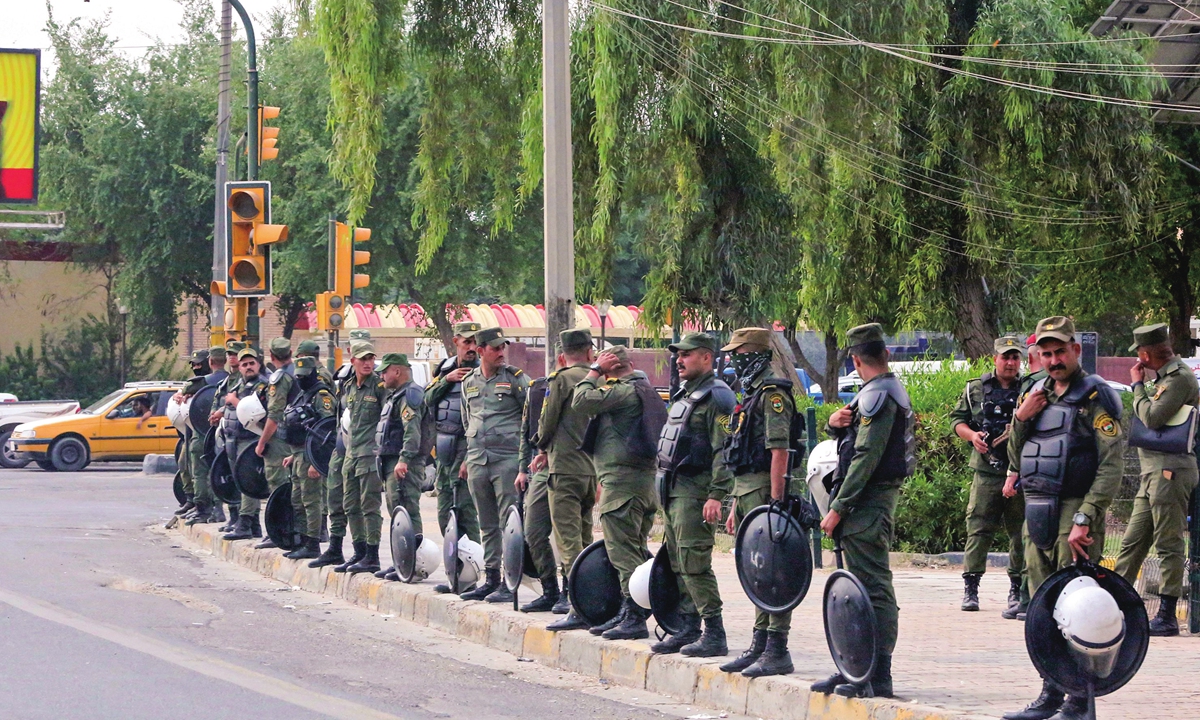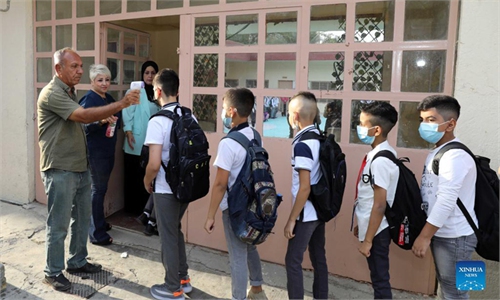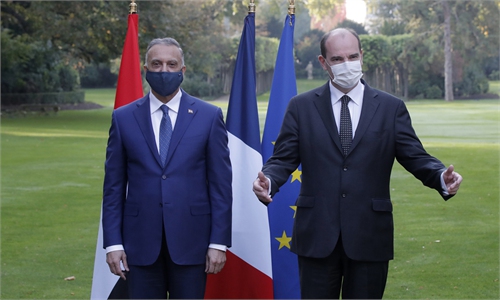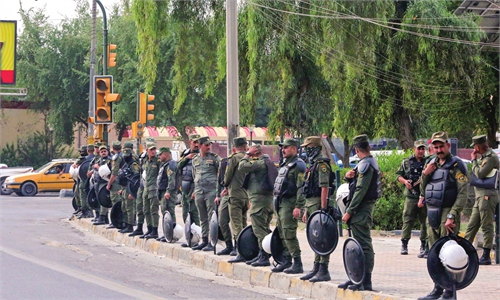
Iraqi security forces stand guard near Baghdad's high-security Green Zone on October 31, 2021, after three rockets hit a neighborhood near where the US embassy is located. The so far unclaimed attack, the first to target the Green Zone since two rockets were fired on July 29, comes as authorities conduct a recount of votes cast in an October 10 parliamentary election. Photo: VCG
Iraq could suffer a 20 percent drop in water resources by 2050 due to climate change, the World Bank said Wednesday, warning of repercussions on growth and jobs.Water is a crucial issue for the oil-rich country of 40 million that is facing an acute energy crisis, compounded by increasingly severe droughts and low rainfall.
"Without action, water constraints will lead to large losses across multiple sectors of the economy and come to affect more and more vulnerable people," the World Bank's Saroj Kumar Jha said in a statement accompanying a new report.
"By 2050, a temperature increase of 1 degree Celsius, and a precipitation decrease of 10 percent would cause a 20 percent reduction of available freshwater" in Iraq, the report said. "Under these circumstances, nearly one-third of the irrigated land in Iraq will have no water by the year 2050."
Modeling showed that "real GDP in Iraq could drop by up to 4 percent, or $6.6 billion compared to 2016 levels," according to the report.
Demand for unskilled labor in the agricultural sector could fall by 11.8 percent, and by 5.4 percent for non-agricultural activities.
Water scarcity "is linked to small-scale forced displacement in Iraq," the World Bank warned, particularly in the country's south.
In 2014, Iraq prepared a 20-year, $180 billion plan to manage its water crisis. But it was stillborn as the Islamic State group seized a third of the country in 2014 and money was diverted to fight the jihadists.
AFP



